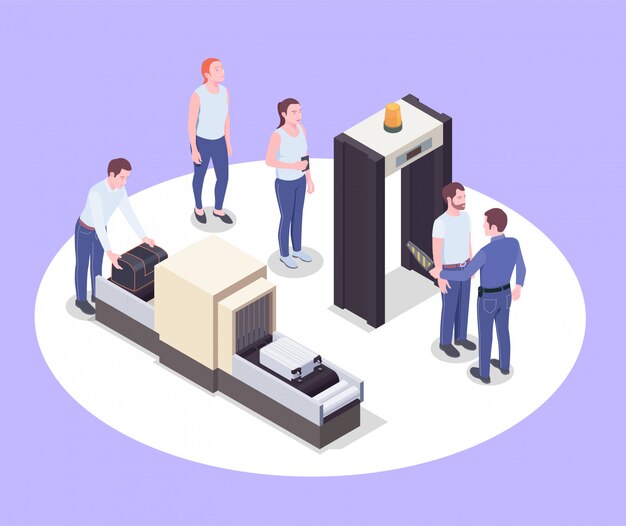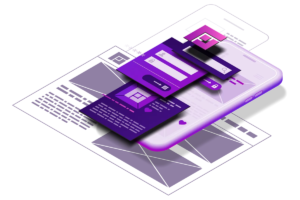Efficient Queue Management Systems in Pakistan’s Major Cities
Introduction
Queue management systems (QMS) are critical in today’s fast-paced world, where efficient service delivery and customer satisfaction are paramount. With rapid urbanization and a booming population, major cities like Rawalpindi, Lahore, and Karachi face significant challenges in managing queues effectively. In this comprehensive guide, we will explore the importance of queue management systems, their implementation, and how they are transforming service sectors in Pakistan.
Understanding Queue Management Systems
A queue management system is a set of tools and technologies designed to streamline the process of serving customers. It not only reduces waiting times but also improves the overall experience by organizing queues more effectively. These systems are widely used in sectors such as healthcare, banking, government offices, and retail.
Key Features of a Queue Management System
- Automated Ticketing: Helps manage the order of service and reduce confusion.
- Digital Displays: Provides customers with real-time updates on their queue status.
- Data Analytics: Gathers data on peak hours, service times, and staff performance.
- Remote Queueing: Allows customers to book their spot in line through apps or websites.
Benefits of Implementing a QMS
- Reduced Waiting Times: Customers are served faster, enhancing satisfaction.
- Increased Efficiency: Staff can manage customer flow better, leading to higher productivity.
- Improved Customer Experience: Customers appreciate well-organized, less stressful environments.
Queue Management System in Rawalpindi
Rawalpindi, a bustling city with a vibrant economy, sees heavy foot traffic in government offices, hospitals, and commercial areas. Implementing a robust queue management system can revolutionize the way services are delivered here.
Why Rawalpindi Needs a Queue Management System
Rawalpindi’s unique position as a twin city to Islamabad means it serves a large population, requiring efficient service delivery mechanisms. Here are some key areas that benefit from QMS:
- Healthcare: Hospitals and clinics need to manage patients effectively to provide timely care.
- Government Services: Offices like NADRA and passport centers face high demand and require streamlined operations.
- Retail and Banking: Shopping centers and banks can improve customer satisfaction by reducing wait times.
Best Practices for QMS Implementation in Rawalpindi
- Utilize SMS Alerts: Notify customers of their turn, allowing them to wait comfortably.
- Deploy Mobile Apps: Enable people to join queues remotely and receive updates.
- Monitor Data Analytics: Use insights to allocate resources efficiently during peak hours.
Queue Management System in Lahore
Lahore, the cultural and economic hub of Pakistan, experiences a high volume of daily visitors. From busy markets to critical service centers, managing queues is crucial for maintaining order and enhancing service quality.
Key Sectors Benefiting from a QMS in Lahore
- Educational Institutions: Universities and colleges can use QMS for better student management during admissions.
- Transport Hubs: Stations and bus terminals can improve passenger experiences with organized queues.
- Financial Services: Banks in Lahore can handle large crowds more efficiently, improving service quality.
Technology and Innovations in Lahore’s QMS
- AI-Powered Systems: Using artificial intelligence to predict queue lengths and optimize staff allocation.
- Interactive Kiosks: Placed at strategic locations for easy ticket generation and queue management.
- Feedback Mechanisms: Collecting real-time feedback to continuously improve service standards.
Queue Management System in Karachi
Karachi, Pakistan’s largest and most populous city, poses unique challenges in managing customer flow due to its sheer size and bustling commercial activity. A robust queue management system is essential for smooth operations in this metropolis.
Challenges Faced in Karachi
- High Population Density: Managing large crowds in government offices, hospitals, and financial institutions is a significant challenge.
- Traffic Congestion: Long travel times make waiting in queues even more frustrating for citizens.
- Diverse Service Needs: From corporate clients to everyday consumers, service demands are varied and high.
Solutions for Effective Queue Management in Karachi
- Virtual Queuing: Reduces the need for physical presence, allowing customers to wait wherever they are.
- Centralized Management: Integrating multiple service points to manage queues efficiently from a central location.
- Multi-Language Support: Offering services in different languages to cater to Karachi’s diverse population.
Conclusion
Queue management systems are essential tools for transforming service delivery in Pakistan’s major cities. By implementing advanced QMS technology in Rawalpindi, Lahore, and Karachi, businesses and public institutions can enhance efficiency, reduce waiting times, and improve overall customer satisfaction. As urban populations continue to grow, investing in modern queue management systems is not just a convenience but a necessity.
FAQs
- What is the main purpose of a queue management system?
A QMS is designed to reduce waiting times, improve customer experience, and enhance service efficiency. - Which sectors in Rawalpindi benefit the most from QMS?
Sectors like healthcare, government services, and banking see significant benefits from queue management systems. - How does Lahore’s queue management system use technology?
Lahore’s QMS employs AI, interactive kiosks, and feedback mechanisms to optimize service delivery. - What are the unique challenges of implementing QMS in Karachi?
High population density, traffic congestion, and diverse service needs are some of the challenges faced in Karachi. - Can QMS be customized for different cities in Pakistan?
Yes, QMS can be tailored to meet the specific needs and challenges of each city, ensuring effective service delivery.














Post Comment